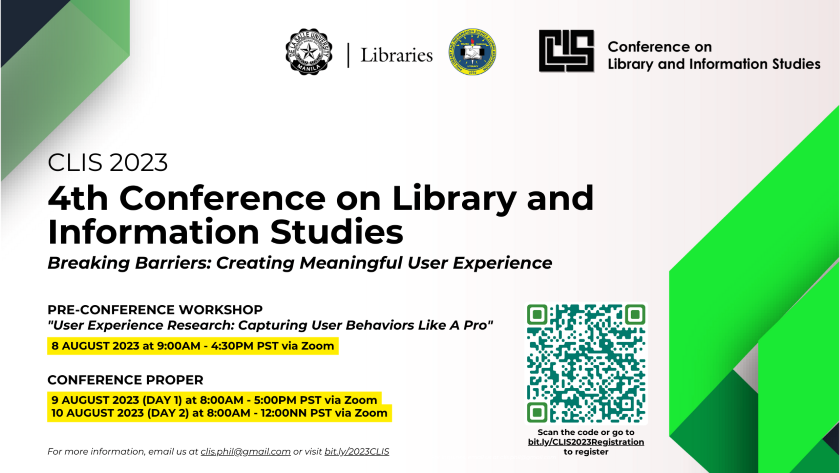Now in its 4th year, the annual Conference on Library and Information Studies (CLIS 2023) brings together a broad community of library and information professionals, practitioners, as well as LIS educators and students to discover, discuss and demonstrate practices and initiatives on user-focused studies and projects.


